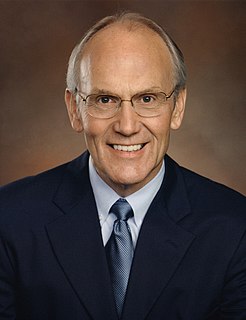A Quote by B. C. Forbes
Employers, have you ever stopped to reckon what the goodwill of your workers is worth? ... In most large concerns it would be worth more in dollars and cents to have the goodwill of the working force than of those on the outside. It has been repeatedly demonstrated that the average working force is capable of increasing its production 25% or more whenever the workers fell so inclined. Workers animated by ill will cannot possibly give results equal to those of workers animated by goodwill. The tragic fact appears to be that a tremendous number of working forces are not so animated.
Quote Topics
Animated
Appears
Average
Been
Cannot
Capable
Cents
Concerns
Dollars
Employers
Equal
Ever
Fact
Fell
Force
Forces
G Force
Give
Goodwill
Ill
Ill Will
Inclined
Increasing
Large
More
Most
Number
Outside
Possibly
Production
Reckon
Repeatedly
Results
Stopped
Than
Those
Tragic
Tremendous
Whenever
Will
Workers
Working
Worth
Would
Would Be
Your
Related Quotes
I know firsthand that many employers who comply with other labor standards still hire the undocumented. Many businesses pay the minimum wage and have barely tolerable working conditions because there are sufficient undocumented workers willing to accept those terms. If we care about low-income workers in this country, we need to create pressure to improve their economic condition by reducing the supply of unauthorized workers.
Whenever possible, I like to have the supreme head of a company show me over the works. It is extremely illuminating to note the attitude of workers towards their boss, and equally interesting to note the attitude towards the workers. It is tragic to notice how many chief executives of large concerns are absolutely unknown, even by sight, to the rank and file of their workers.
While there are many illegal immigrants in America who are good people, many, many, this doesn't change the fact that most illegal immigrants are lower skilled workers with less education, who compete directly against vulnerable American workers, and that these illegal workers draw much more out from the system than they can ever possibly pay back.
While there are many illegal immigrants in our country who are good people, many, many, this doesn't change the fact that most illegal immigrants are lower skilled workers with less education, who compete directly against vulnerable American workers, and that these illegal workers draw much more out from the system than they can ever possibly pay back.
The Social Security program is a pact between workers and their employers that they will contribute to a common fund to ensure that those who are no longer part of the work force will have a basic income on which to live. It represents our commitment as a society to the belief that workers should not live in dread that a disability, death, or old age could leave them or their families destitute.
Basic US economics tells us that back-of-the-house workers are very unlikely to get more pay overall. The fact that workers are in those jobs means employers are already paying them what they need to pay them to get them in the current environment. If employers do share some tips with them, it will likely be offset by a reduction in their base pay.






























